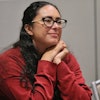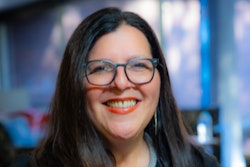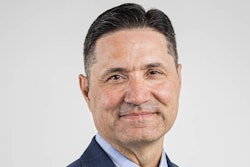A ‘Passport’ to a Four-Year Degree
HBCUs are finding the community college to be a valuable resource when looking to recruit students of color
By Ronald Roach
Cheryl Scott, a native of Norfolk, Va., wanted to attend a four-year college. After being a stay-at-home mom for more than a decade, Scott decided to pursue her dream of becoming an elementary school teacher. When she applied to Norfolk State University, she learned that her associate’s degree credits from a local two-year college could be not used because the school, which had closed sometime after she had earned her degree, had not been an accredited institution. To make matters worse, Scott’s high school academic record at a Norfolk public school fell short of the 2.0 grade point average NSU required for its matriculating students.
“It was so frustrating, and it made me wish I had done better in high school,” she says.
Fortunately for Scott, Norfolk State officials had established, in association with the Tidewater Community College system, a program called PASSport. Formerly an open admissions public university, Norfolk State worked out an agreement with Tidewater that would allow students not meeting the university’s admissions requirements to attend the community college to take remedial courses, usually for one or two semesters, before enrolling directly into Norfolk State.
“I had to start all over again, but (the PASSport program) got me into college,” says Scott, who expects to graduate in 2005.
Claiming that it’s the only program of its kind at a historically Black college or university, Norfolk State officials have embraced PASSport because they see it as a way to keep their doors open to students who in the past would have automatically gained entry under open admissions. In addition to PASSport, Norfolk State and Tidewater Community College officials signed an articulation agreement this past May to hammer out specific transfer arrangements for a variety of majors.
“Norfolk State still sees itself as a school of opportunity even though we have eliminated open admissions,” says Dr. Elsie M. Barnes, vice president for academic affairs at Norfolk State.
Because of changes in state higher education systems to shift remedial education to the community colleges, historically Black public universities in a number of states have had to drop their open-admissions status and adopt selective admissions standards. Observers say it’s critical that with raised admissions standards at four-year schools, HBCUs find and develop ways to be accessible and attractive to students who begin their academic careers at the community college.
That has meant that HBCUs, like many of their four-year counterparts across American higher education, have been actively developing articulation agreements with community colleges that specify the criteria under which the community-college student can receive credit at and transfer into four-year schools.
“There has to be real commitment from the presidents of these institutions to develop effective articulation agreements,” says Arnold Kee, coordinator of minority services at the American Association of Community Colleges (AACC) in Washington.
In addition to unique programs such as PASSport and the growing adoption of articulation agreements, two- and four-year schools are forging links around critical need areas, such as in nursing, teacher training, and science. A few HBCUs are taking advantage of these critical need initiatives that link them with community colleges.
Adjusting to Higher Standards
HBCU advocates and officials have watched with concern the trend of states raising admissions standards at four-year colleges and universities. The move has meant that four-year schools are dropping their remedial education programs and community colleges are becoming the only public state institutions to offer remedial courses. Justified as a means to save money in states, increase retention rates and improve the overall academic quality of four-year institutions, the shift has forced a number of minority-serving institutions, such as HBCUs and urban universities, to eliminate the practice of open admissions.
For the most part, fears that adopting higher admissions standards might put some HBCUs out of business due to deep enrollment drops have been far from realized. In Mississippi and Louisiana, the introduction of higher admissions standards in the late 1990s has generally led to short-lived enrollment drops at the historically Black public colleges in those states. Mississippi’s adoption of higher admissions standards resulting from a 1997 ruling in the state’s long-running Ayers desegregation case has seen more enrollment growth rather than decline at the state’s three Black universities.
In the past few years, undergraduate enrollments rose from 6,832 in fall 2000 at Jackson State University to 7,783 in fall 2002; 2,936 in fall 2000 at Alcorn State University to 3,143 in fall 2002; and 2,687 in fall 2000 at Mississippi Valley State University to 3,521 in fall 2002.
Dr. Edward R. Jackson, chancellor of Southern University in Baton Rouge, La., has said the move from open admissions to selective admissions resulted in undergraduate enrollment drops in 2001 and 2002. Officials, however, anticipate that Southern will see enough of an increase in the number of freshman and transfer students enrolling this fall to reach the 2000 enrollment level.
Not solely relying on demographic changes that show the baby-boomer children swelling most college enrollments over the next several years, Jackson State and Southern have taken measures to beef up their recruiting efforts at community colleges. “We see the community college as fertile ground,” says Dr. Debra A. Buchanan, the vice provost for student life at Jackson State University in Jackson, Miss.
Like other Mississippi senior colleges, Jackson State has hired a full-time recruiter to scour the community colleges for prospective students. Buchanan says the recruiter spends a great deal of time visiting the two-year school campuses during their career/academic fairs. She believes there’s a sense of competition among the Mississippi universities that has evolved since the late 1990s to attract well-prepared minority students to the respective schools.
“The predominantly White schools have been able to increase their numbers of Black students largely by recruiting them from the community colleges,” Buchanan says.
At Norfolk State, the idea to launch PASSport grew out of discussions between Dr. Marie V. McDemmond, president of Norfolk State University, and Dr. Deborah M. DiCroce, president of Tidewater Community College, according to McDemmond. Typically, a student accepted into PASSport either failed to achieve a 2.0 high school grade point average or missed making a minimum score on either the SAT or the ACT. Twenty-three percent of the school’s annual applicant pool fail to meet minimum academic requirements.
Since the fall of 2000 when the program began, a total of 30 students who enrolled in PASSport have made the transition to full Norfolk State students.
“Passport lets students come in as soon as they finish their remedial course without them having to apply again,” McDemmond says.
While a number of HBCUs are embracing community colleges after adopting higher admission standards, at least one historically Black institution, Winston-Salem State University, is voluntarily becoming more selective in its admissions as a strategy to raise its academic profile. Under a push by Dr. Harold Martin, the chancellor at Winston-Salem State, the school has been refining its articulation agreements with local area community colleges to make it easy for prospective students to take remedial courses that will allow them admission to Winston-Salem State.
Attending to Special Needs
In addition to adjusting to higher admissions standards, HBCUs have begun to participate in programs that funnel community- college students in critical need majors, such as teaching and science, into four-year schools and puts some of them on the path to graduate school (see Techtalk, pg. 40).
One such program is the N.C. Transfer Assistance in the Biomedical Sciences (NC-TABS) program that gives minority community-college students the training and experience to move from the two-year degree to the doctorate. Funded through the National Institutes of Health (NIH), the NC-TABS program is administered by the N.C. Community College system and the University of North Carolina system.
Since 1995, the community college and the university system have received about $1 million in NIH grant funding. After completing their two-year degree, NC-TABS students are eligible to attend any of the 16 public universities in North Carolina. Nevertheless, the program receives the bulk of its instructional and operational support from N.C. Central University, N.C. State University, North Carolina A&T State University and UNC-Pembroke, according to program officials.
According to the Durham Herald-Sun, among the 113 students who have participated in NC-TABS at community colleges, 50 transferred to four-year institutions. Seventeen have earned a bachelor’s degree and five are now working on a master’s or a doctorate.
In recent years, a number of states have moved to allow their community colleges to play a larger role in the recruitment and training of teachers. This trend has pushed states to let community colleges offer associate’s degree programs in education for the first time, or allowed the four-year schools to grant students academic credit in education programs for the classes they have taken at community colleges.
In 2001, the Maryland Higher Education Commission authorized community colleges to offer associate’s degrees in teaching. Students can participate in student-teaching exercises at local elementary and secondary schools, and take the courses that are typically available to four-year college students. The associate’s degree is expected to give students full credit for their class work as long as they complete their academic studies at a four-year school. Maryland has four historically Black universities.
Enterprising officials at community colleges say they are looking for foundation and government grant support to develop science and engineering programs that are linked to four-year schools. Dr. Bruce Crawford, vice president for instruction at Lawson State Community College in Alabama, says Lawson has two science education initiatives that channel students into four-year schools.
“We’re looking to get support for more programs because we think we can make a contribution,” Crawford says, noting that Lawson is considered a historically Black institution.
Crawford believes that historically Black community colleges, such as Lawson, could play a critical role in science and engineering education with funding from agencies, such as the National Science Foundation and the NIH.
National Movement Comes Into Focus
Observers point to efforts, such as the recent Access to the Baccalaureate campaign by the AACC and the American Association of State Colleges and Universities (AASCU) to ease the path of community-college students into four-year institutions, as clear evidence that a baccalaureate movement for community-college graduates is widely embraced throughout American higher education.
The push by Dr. Philip Day, chancellor of the City College of San Francisco, and others to establish the National Articulation and Transfer Network (NATN), which aims to channel minority community-college students into four-year schools, has helped focus attention on minorities in the community colleges. Since the founding of the NATN in 2001, several high-profile, cross-state articulation agreements involving historically Black schools and community colleges have emerged, including an agreement between the Maricopa Community Colleges in Arizona and Mississippi Valley State University. “The (NATN) announcement represented a turning point. That’s when the HBCU community seemed to say it was fully on board,” says AACC’s Kee.
It has been said that HBCUs have been more reactive than proactive in reaching out to community colleges, particularly given that the standards movement has forced a number of Black schools to embrace them. Favoring a strong commitment by HBCUs to partner with community colleges, Norfolk State’s McDemmond says Black schools are generally moving in a positive direction.
“There needs to be an increasing response by HBCUs. These relationships should be enhanced,” she says.
© Copyright 2005 by DiverseEducation.com















